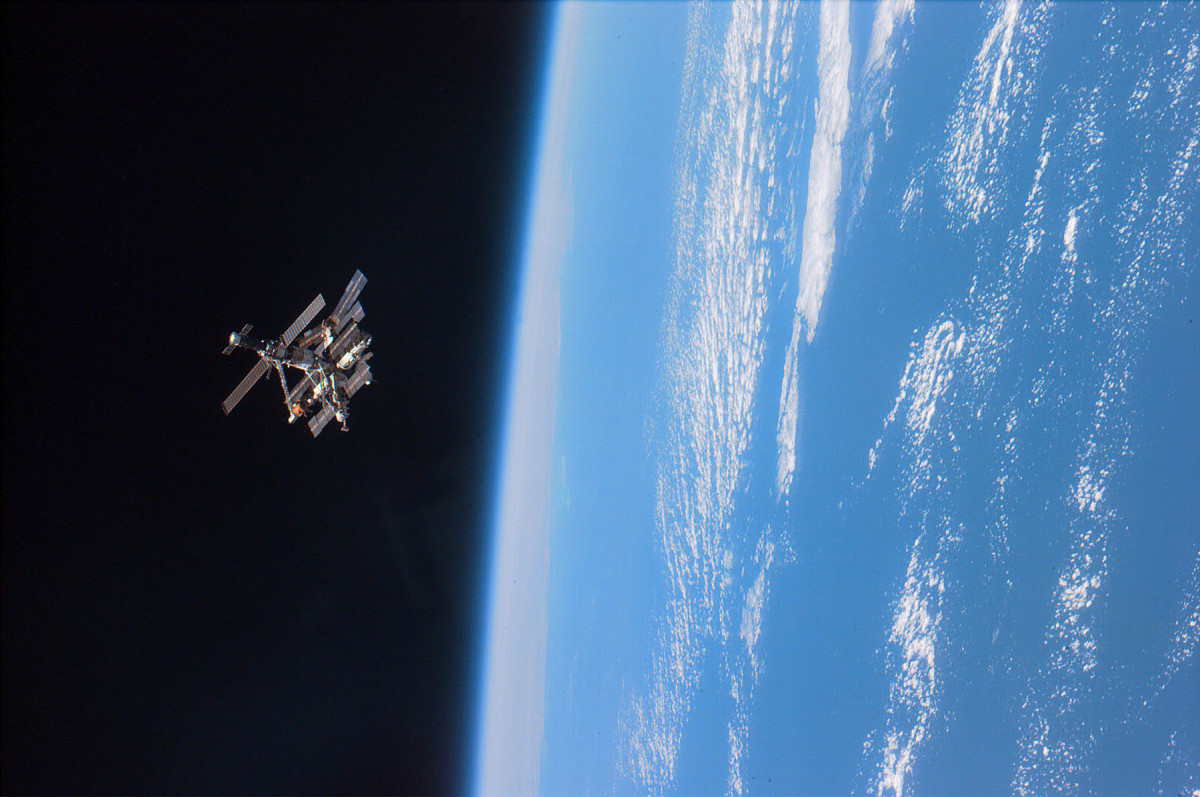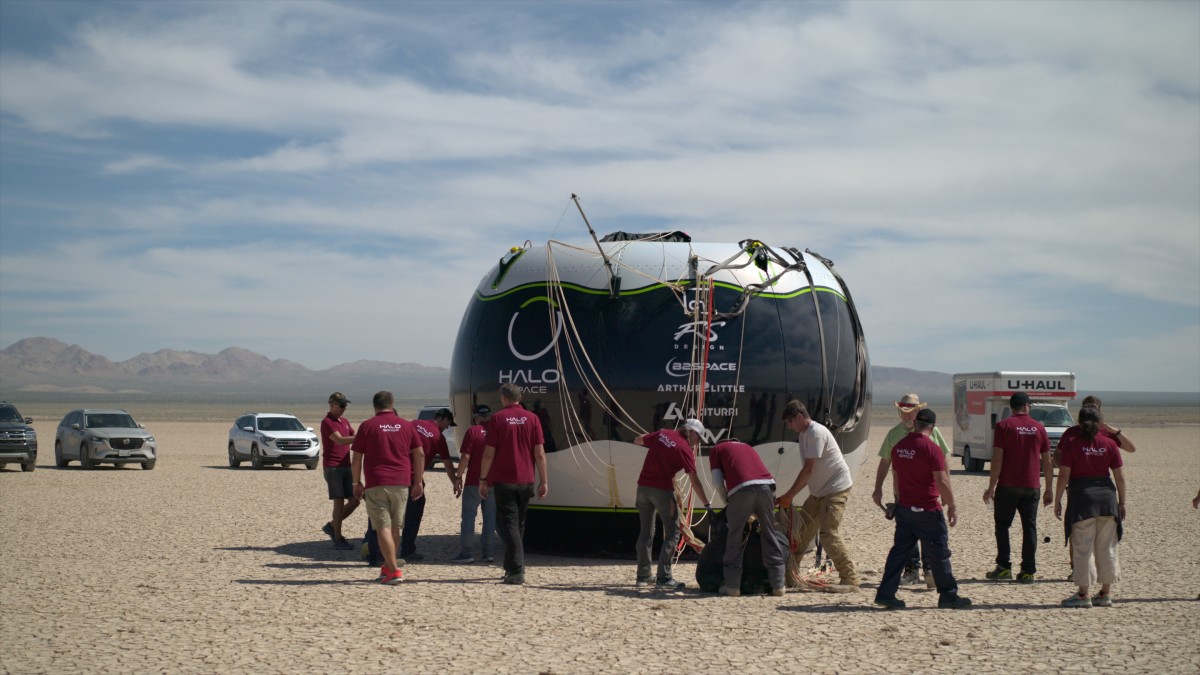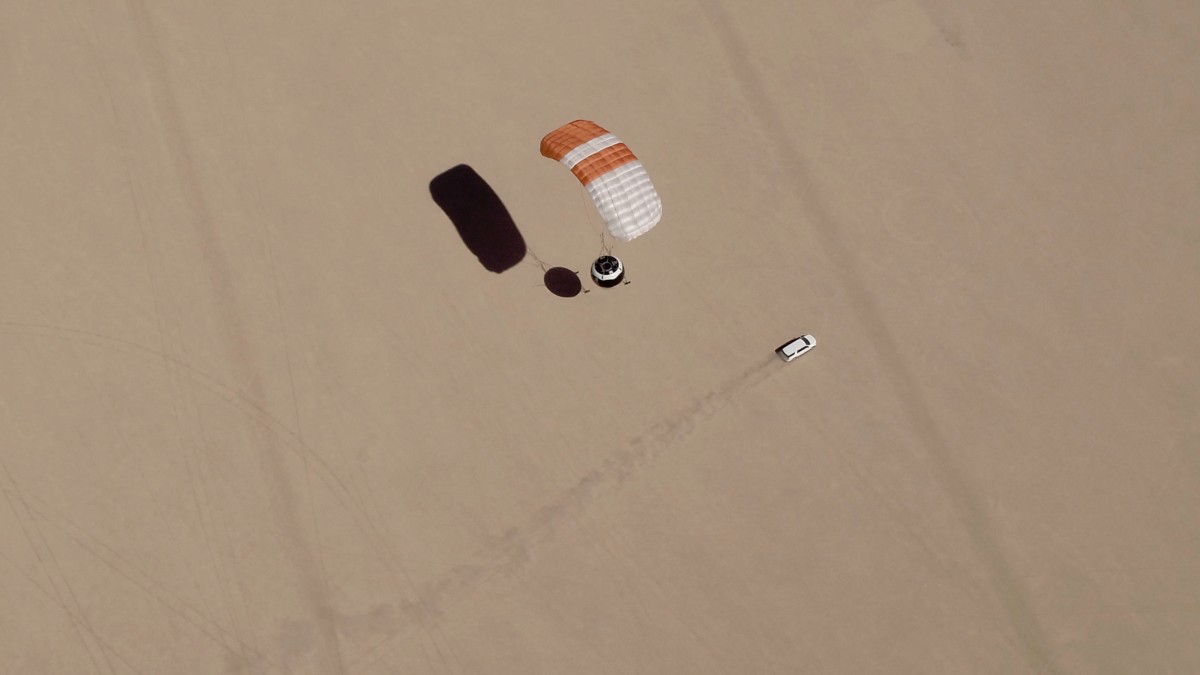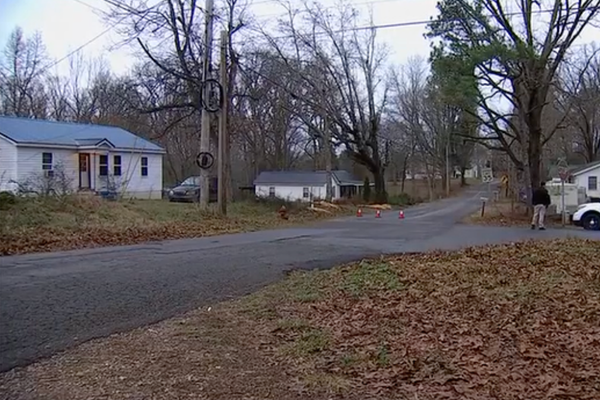
Fast Facts
- Space tourism, with a current market size of around $800 million, is expected to soon become a multi-billion dollar industry.
- Halo Space, a near-space, emission-free tourism company, has plans to begin commercial operations in 2026.
- TheStreet sat down with Halo Space CEO Carlos Mira to discuss the company's approach and plans.
Carlos Mira, the CEO of Halo Space, remembers watching Apollo 11 land on the moon.
The moment ignited a passion that he has spent his whole life pursuing. He began skydiving at the age of 18 and has since clocked more than 1,000 jumps.
But Mira, who is also a pilot, hasn't made it to space yet.
Halo Space, in part, is a way for him to get there.
Related: SpaceX investor explains how to invest in space
Halo Space and the blue halo
Founded in 2021, Halo Space is a straight-up space tourism company. The Spanish company's mission is to safely and sustainably fly people to the very edge of space — specifically, about 20 miles above sea level — to allow people to witness the curvature of the planet, the depths of space and the famed "blue halo," a blue ring around Earth that can only be viewed from certain vantage points.
Commercial airplanes, in comparison, fly between five and seven miles above sea level.
Halo Space, which is still in the midst of a lengthy testing phase, is designing a zero-emission capsule that will take eight passengers (plus a pilot) above 99.5% of Earth's atmosphere. That remaining .5% is covered by a distance of roughly 40 miles.
The capsule is propelled by an enormous, hydrogen-filled stratospheric balloon, which allows the journey to move at the leisurely pace of 12 miles per hour.

Halo Space
All told, a ride on one of Halo Space's capsules will take between four and six hours, and is devoid of a bunch of rocket-specific features, including rocket fuel, small windows, G-force and heavy acceleration.
"The beauty of our concept is that every key element that we use is mature technology and fully tested," Mira told TheStreet, noting that the stratospheric balloons that will propel Halo's capsules have been in use for around 100 years — Auguste Piccard, a Swiss researcher, flew 52,000 feet into the air in 1932, propelled by the world's first stratospheric balloon.
"We are meeting all the milestones that we were planning when we started in 2021," Mira added.
Halo Space completed its first test flight in December 2022, and is now gearing up for its sixth test flight, which will be conducted in Saudi Arabia in June. Each of Halo's previous test flights tested one specific component of the vehicle; the first tested the vehicle's ability to climb to a given altitude and the fifth tested landing and descent systems. Across the previous five tests, Mira said that all of the capsule's "critical systems" have been tested individually.
The sixth test will be the first to test all of these critical systems together.
"Something which is important is that when you go for a test flight if you try to test everything at once, you don't get the same kind of robustness of the testing as if you're doing it by phases, which is what we have done," Mira said.
Halo Space plans to begin commercial flights in 2026, and Mira hopes to be on board the first one. The company is expecting to conduct 16 tests in the intervening time, though Mira added that the number is an estimation, saying that Halo might go commercial with more or fewer tests than currently anticipated.

Halo Space
Halo Space has said that it expects to take 10,000 people up to the tip of the stratosphere by the end of the decade. This estimation is based on the company's expectation of conducting a minimum of 100 flights from its four global bases in Spain, the U.S., Australia and Saudi Arabia per year, beginning in 2026.
Despite the company's assertion that Halo offers one of the most accessible options to get up to the edge of space, the cost of a single ticket — starting at $164,000 — isn't exactly cheap. Still, Mira thinks that this price point is "where the space tourism market is."
"We believe that by the end of 2030, we may get thousands of passengers per year," he said.
Halo won't start pre-booking passengers until 2025, around one year before its first planned commercial flight.
Related: Former NASA administrator says the space around Earth is like the 'Wild West'
The Space Tourism Industry
Halo Space's coming push into space tourism comes at a period of growth for an industry that's currently in its earliest innings.
According to Future Market Insights (FMI), the global space tourism market hit $747.1 million in 2023, a year in which demand for space tourism grew 14% from the prior year. The market valuation is expected to reach $851.7 million in 2024; FMI predicted that the industry will be valued at around $5 billion by 2034.
"The space tourism industry is still in its early stages, but it has the potential to expand into a multi-billion-dollar industry in the years to come," FMI wrote. "As technology continues to advance and costs come down, space travel is expected to become more accessible to the general public."
Polaris Market Research has predicted that the industry will be valued at $27 billion by 2032.
There are a number of companies that operate in the sector, including Space Adventures and Virgin Galactic (a seat on a Virgin Galactic flight costs $450,000). SpaceX in 2022 launched three tourists to the International Space Station for a week-long stay, at a price tag of $55 million a piece.
Related: SpaceX investor says Starship will open up 'entirely new markets'
Companies like Space Perspective, Zero 2 Infinity and World View, like Halo Space, plan to use stratospheric balloons to fly customers in pressurized capsules to the edge of space. A seat on a World View flight goes for $50,000.
Space Perspective plans to begin flying paying customers in 2024.
In the midst of its testing efforts, Halo Space was indicted last year in Madrid, according to Space News, on charges of unlawful discovery of Zero 2 Infinity's trade secrets. Zero 2 Infinity alleged that the people it hired to fundraise instead established two competing firms powered by Zero 2 Inifinity's intellectual property.
Halo Space denied the charges, saying that its technology is based on technology that has been around for decades. The company said in a statement that it "is ready to take all legal actions available to defend Halo from false accusations."
A PEW research poll last year found that 55% of American adults expect space tourism to be "routine" within the next five decades.
Mira said that he has spoken to astronauts who have described the "transformative" experience of seeing the Earth from space. He said it changes the way you "refer as a human to the planet. And I think it's great to be able to offer this opportunity to thousands of people."
"I would love to go to orbit," Mira said. "I have not yet had an opportunity to go into space. So for me, this is a way to get there."
Contact Ian with tips and AI stories via email, ian.krietzberg@thearenagroup.net, or Signal 732-804-1223.







